- GenZtea
- Posts
- Gen Z is Ditching Degrees, Demanding Wellness, and Done with Perfect
Gen Z is Ditching Degrees, Demanding Wellness, and Done with Perfect
Welcome back to GenZtea's Newsletter, where I break down trends, industries, and tech with a Gen Z lens.
Welcome back to GenZtea's Newsletter, where I break down trends, industries, and tech with a Gen Z lens. I'm Natalie Neptune and I'm so happy you're here.
Missed OpenAI? The Clock Is Ticking on RAD Intel’s Round
Ground floor opportunity on predictive AI for ROI-based content.
RAD Intel is already trusted by a who’s-who of Fortune 1000 brands and leading global agencies with recurring seven-figure partnerships in place.
$50M+ raised. 10,000+ investors. Valuation up 4,900% in four years*.
Backed by Adobe and insiders from Google. Invest now.
This is a paid advertisement for RAD Intel made pursuant to Regulation A+ offering and involves risk, including the possible loss of principal. The valuation is set by the Company and there is currently no public market for the Company's Common Stock. Nasdaq ticker “RADI” has been reserved by RAD Intel and any potential listing is subject to future regulatory approval and market conditions. Investor references reflect factual individual or institutional participation and do not imply endorsement or sponsorship by the referenced companies. Please read the offering circular and related risks at invest.radintel.ai.
Quick update: I started week 2 of working as a full-time employee for Hunter College as a Student Career Program Advisor at Cooperman Business Center. Feel free to DM me if interested in hosting events for NYC students at Hunter College. Drop jobs, internship opportunities here: https://chat.whatsapp.com/Et7HKd4yZ1c0HZUcdTzgrF
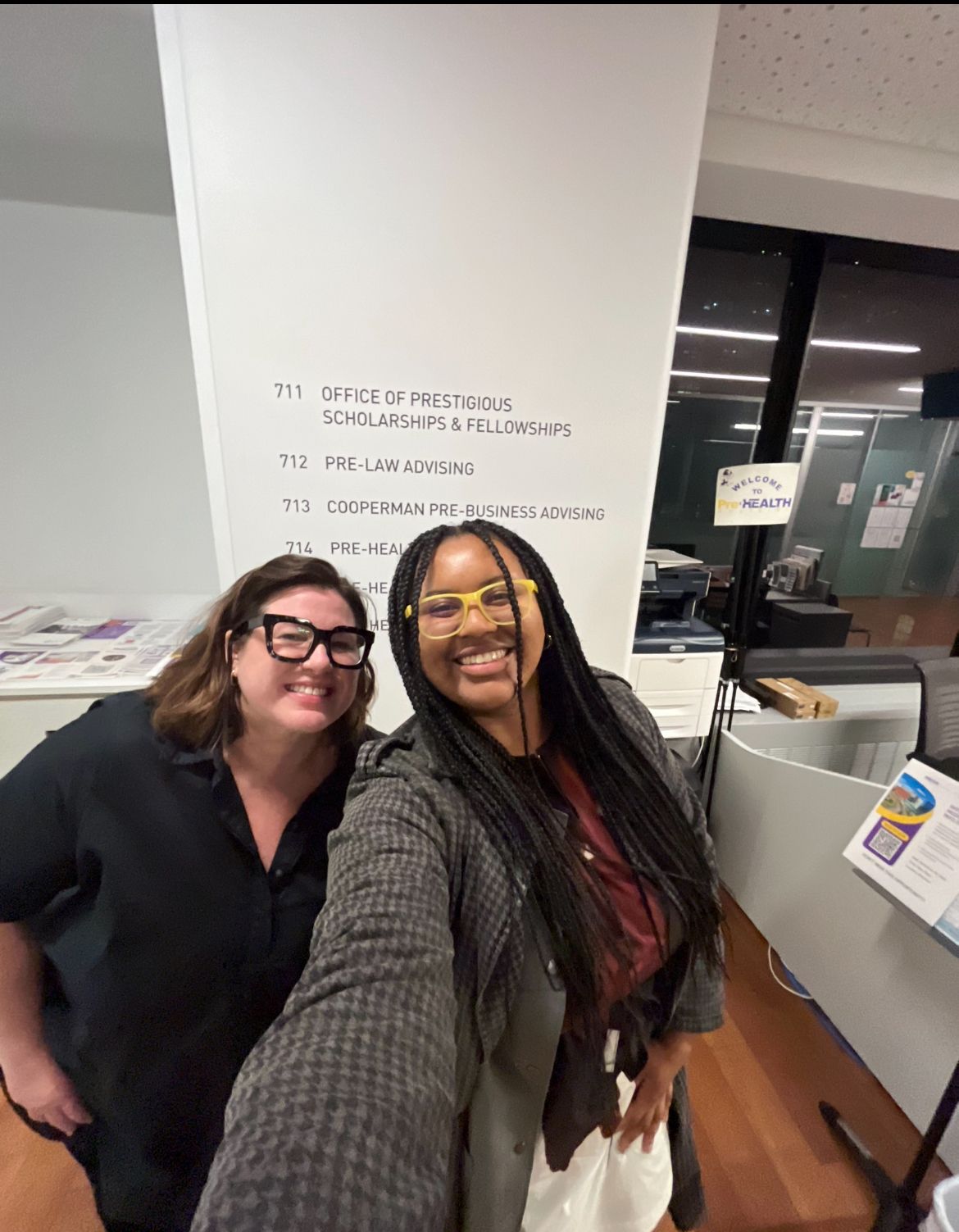
Events
This month's theme? Gen Z is Ditching Degrees, Demanding Wellness, and Done with Perfect 🔮
Why This Matters Right Now
Every company and their mom is dropping 2025 predictions right now, and honestly? Most of them are missing what Gen Z actually cares about. So I've been deep in the reports, connecting the dots, and translating corporate-speak into actual insights.
As someone who's built a 5,000+ person community across 119+ universities, became a LinkedIn Top Voice for Next Gen with 14K followers, and literally works with Gen Z every single day... I've gotten pretty good at spotting trends before they blow up.
So I compiled everything into one master breakdown. Consider this your cheat sheet for 2025.
Here's What We're Covering:
The Rise of The College/High School Dropout - why Gen Z is ditching degrees, how the startup scene is adapting, and where I actually stand on this
The "Clean Girl" Aesthetic is Dead - the messy, unfiltered era is here (but guys are doing the opposite with matcha + quarter zips?)
Is Buying a House with Your Friends the Future of Home Ownership? - co-living is getting a major upgrade
Gen Z is Rewriting The Wellness Playbook - we're prioritizing mental health over paychecks and employers are finally catching up
70% of Gen Z is Stuck in Low-Quality Jobs - and they're miserable (let's talk about why)
Now... let's get into it! ⬇️
The Rise of The College/High School Dropout
TLDR: Gen Z is saying "screw you" to the traditional four-year path, and honestly? The numbers are backing them up. Plus, the startup world and even universities are now designing paths specifically for young people who want to skip the degree.
I'm seeing this narrative blow up everywhere lately — TikTok, Twitter, LinkedIn — and it's not just kids being rebellious. 30% of students are considering dropping out due to financial challenges, and when you look at the math, it's making a lot more sense than it used to.
Let's talk about what's happening on social media first, because that's where the real tea is ☕
42% of US teens are actively earning money online through their digital channels, and they're watching people like MrBeast (who dropped out of East Carolina University after a few weeks) build a billion-dollar empire from his bedroom. The social proof is EVERYWHERE.
On TikTok, there's literally an entire genre of "college dropout success story" content that's going mega-viral. You've got creators posting "Dropping out of college was the best decision of my life" videos getting millions of views, and the comments? Full of people sharing their own stories or saying they're considering the same path.
Even more wild: the top two career aspirations among Gen Alpha across the U.S. are YouTuber and TikTok creator. Like… we're not even pretending the traditional path is the dream anymore.
The Stats That Tell the Real Story
Here's where it gets spicy. 51% of Gen Z says their college degree was a waste of money (compared to just 20% of boomers). And get this — the unemployment rate for men ages 22 to 27 is almost the same regardless of whether they have a college degree or not.
Only 33% of recent graduates believe their education was worth the cost. That's INSANE. And with AI coming for everyone's jobs, 45% of Gen Zers feel AI has made their degree irrelevant.
The Startup Scene is Adapting FAST
But here's what's really fascinating: the startup ecosystem is literally building alternative paths for high schoolers who want to skip college altogether.
The Residency — a program that provides housing and co-working space for 3 to 6-month cohorts — is recruiting people who "like to invent" and "bring novel ideas into the real world". One of their residents, Brian, hasn't graduated school yet but has already worked at Tesla, Uber, Google's moonshot factory, and Samsung Research. During his residency, he built a search tool that hit 10 million searches in about a month.
And he's not alone — Chandhana was turning seaweed into a plastic alternative before graduating high school. As a previous
Peter Thiel's fellowship is another perfect example. Since 2011, the program has given young people $200,000 to drop out of college, and these fellows have founded over 11 unicorns with a combined worth of over $100 billion. Companies like Figma and Scale AI started this way — their founders left Brown and other prestigious schools to go all-in on building.
There are also programs like Leangap, MIT LaunchX, and Young Founders Lab specifically designed for high schoolers to launch startups during the summer. The message is clear: you don't need to wait until after college to start building.
Even Universities Are Getting It
And plot twist? Some universities are actually adapting instead of fighting this trend.
Syracuse University just launched the nation's first academic Center for the Creator Economy in fall 2024 — a joint initiative between their business and communications schools. The creator economy could be worth nearly $500 billion by 2027, and Syracuse is betting big on preparing students for this reality.
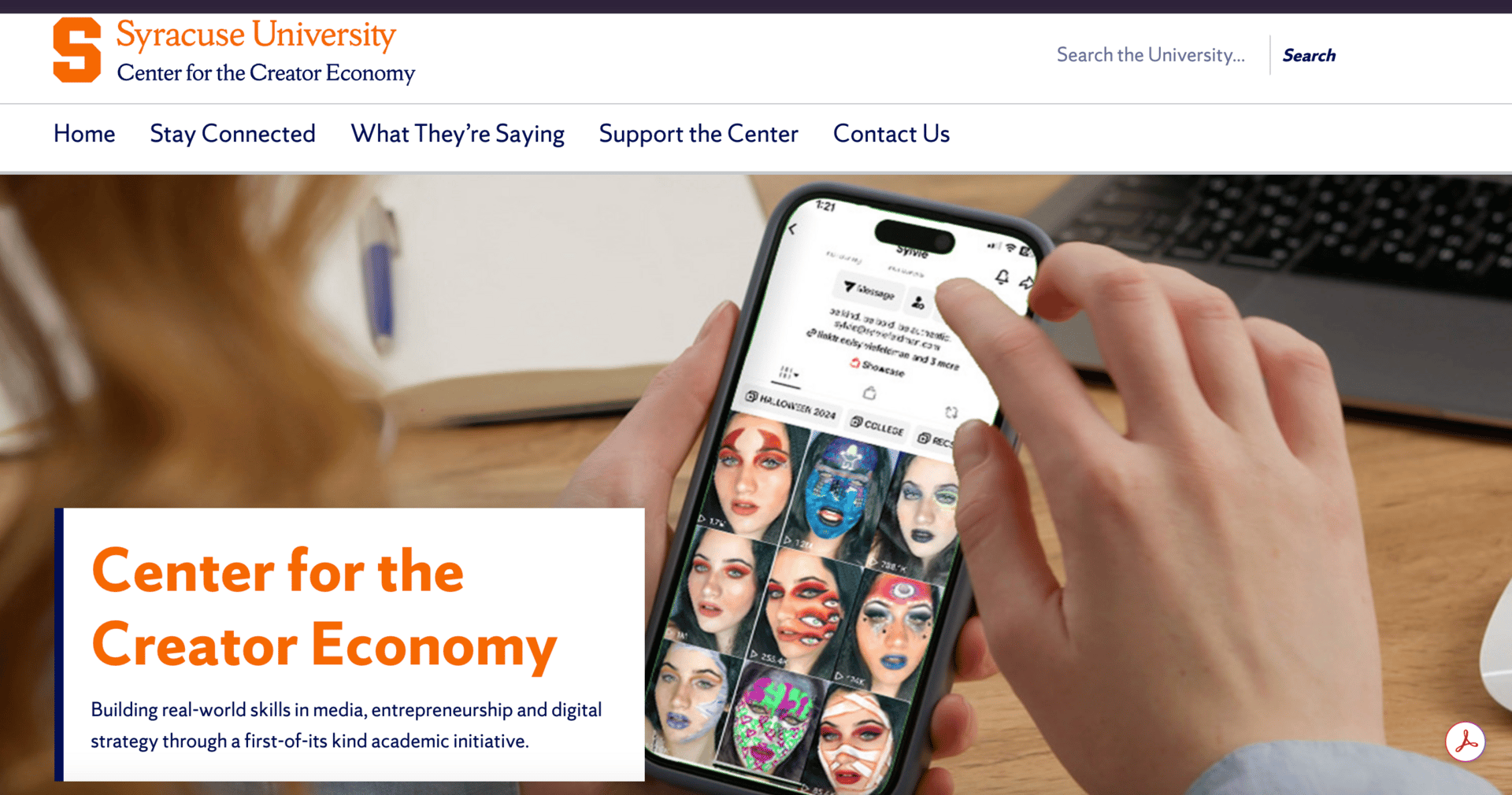
The center offers undergraduate and graduate courses in content creation, audience strategy, and digital innovation, plus incubators with mentorship and funding. Nearly half of U.S. teenagers already earn income through digital channels, so why not teach them how to do it better and build sustainable businesses around it?
Other schools are following suit with creator-focused courses, but Syracuse went all-in with a dedicated center. That's the kind of institutional shift that shows this movement isn't just a trend — it's a fundamental change in how we think about careers and education.
The Survivorship Bias Problem
Now, I'm not gonna sit here and tell you everyone should drop out. That's not the vibe. We all know the Steve Jobs, Mark Zuckerberg, Bill Gates stories — but here's what people don't talk about: the college dropout success rate is only at around 6%.
The thing is, those famous dropouts had access to resources, networks, and elite education before they left. Among 11,745 US leaders including CEOs, politicians, and business leaders, 94% attended college. The dropout myth is powerful, but it's still a myth for most people.
What This Actually Means
I think what's really happening is Gen Z is questioning the ROI of traditional education in a way previous generations never did. We're seeing:
The rise of alternative paths (creator economy, apprenticeships, bootcamps, startup accelerators)
Programs like The Residency and Thiel Fellowship actively recruiting high schoolers
Universities like Syracuse building entire centers around the creator economy
More transparency around college debt vs. earning potential
Real-time success stories on social media challenging the "you need a degree" narrative
AI making us rethink what skills actually matter
The traditional four-year path isn't dead, but it's definitely not the only path anymore. And honestly? That's probably a good thing.
For those of us building communities and brands for Gen Z, this shift is MASSIVE. We need to meet people where they are — whether that's in a college dorm, a coding bootcamp, a creator economy center, or living in a Berkeley residency house working on their startup. The one-size-fits-all approach is officially over.
My Hot Take
Here's where I land on all of this: I'm still team "get the degree."
Not because I think college is perfect (clearly it's not — the stats don't lie), but because the networks, the structured learning environment, and yeah, the credentials still matter in ways that are hard to replicate elsewhere. My time at Penn State gave me way more than just an engineering degree — it gave me lifelong relationships, access to opportunities I wouldn't have had otherwise, and honestly, the space to figure out who I was before diving into the chaos of building a business.
But here's the thing: I also built GenZtea while in school. I didn't have to choose between getting my degree and being entrepreneurial. The best path forward isn't either/or — it's figuring out how to do both. Use college as your sandbox to experiment, build, fail, and try again, all while getting a safety net and building a network that'll matter for the rest of your career.
The dropout narrative is trendy and makes for great TikTok content, but the reality is most of us aren't Mark Zuckerberg. And that's totally okay. You can be entrepreneurial, build community, create impact, AND get your degree.
That's what I did, and honestly? I wouldn't change it for anything.
Is Buying a House with Your Friends the Future of Home Ownership?
The housing market today is challenging: interest rates are high, and the average cost of a home in the U.S. is sitting at around $500,000 according to data from Forbes.
For many Millennials and Gen Z whose wages have not caught up to inflation, home ownership no longer feels attainable as part of the so-called American Dream.
With rising housing costs and slowing wages, owning a house is slipping from reach for many millennials, Gen Z, and younger cohorts.

But some are not to be deterred- especially if they have some assets to invest. Over the last year, we’ve seen a trend in friends pooling their money together on a house or property that they pledge to invest and/or live in for the long term.
It’s an interesting, creative workaround. “It’s something I see a lot” says Jackie Coffey a Texas-based real estate investor who’s also gained a following on TikTok for her informational videos about home buying. Coffey says she’s seen more Gen Z jump on the trend than Millennials.
Paul Harlow, a 22-year-old from Omaha, just closed on a home with his two “lifelong friends” last month. The three now live in a three-bedroom, two-and-a-half bath house together.
Harlow is listed as. the primary owner, he says because he was able to contribute the most. He adds that he covered 80% of the down payment because he had more savings than his friends.
But the three friends did not go into this blind. They have a legally-binding contract among them to contribute to the monthly mortgage and living and maintenance, and more importantly, a lifelong contract of “trust and respect” between them to settle any stick disputes.
Experts warn that, as idealistic as it may sound to be living with your besties, there are so many precautionary and legally thorny situations that could come up if you aren’t going into it consciously.
“Smart buyers create a co-ownership agreement: They define who pays what, how they split up taxes, and how they divide repairs; everyone should have a defined role,” she advises.
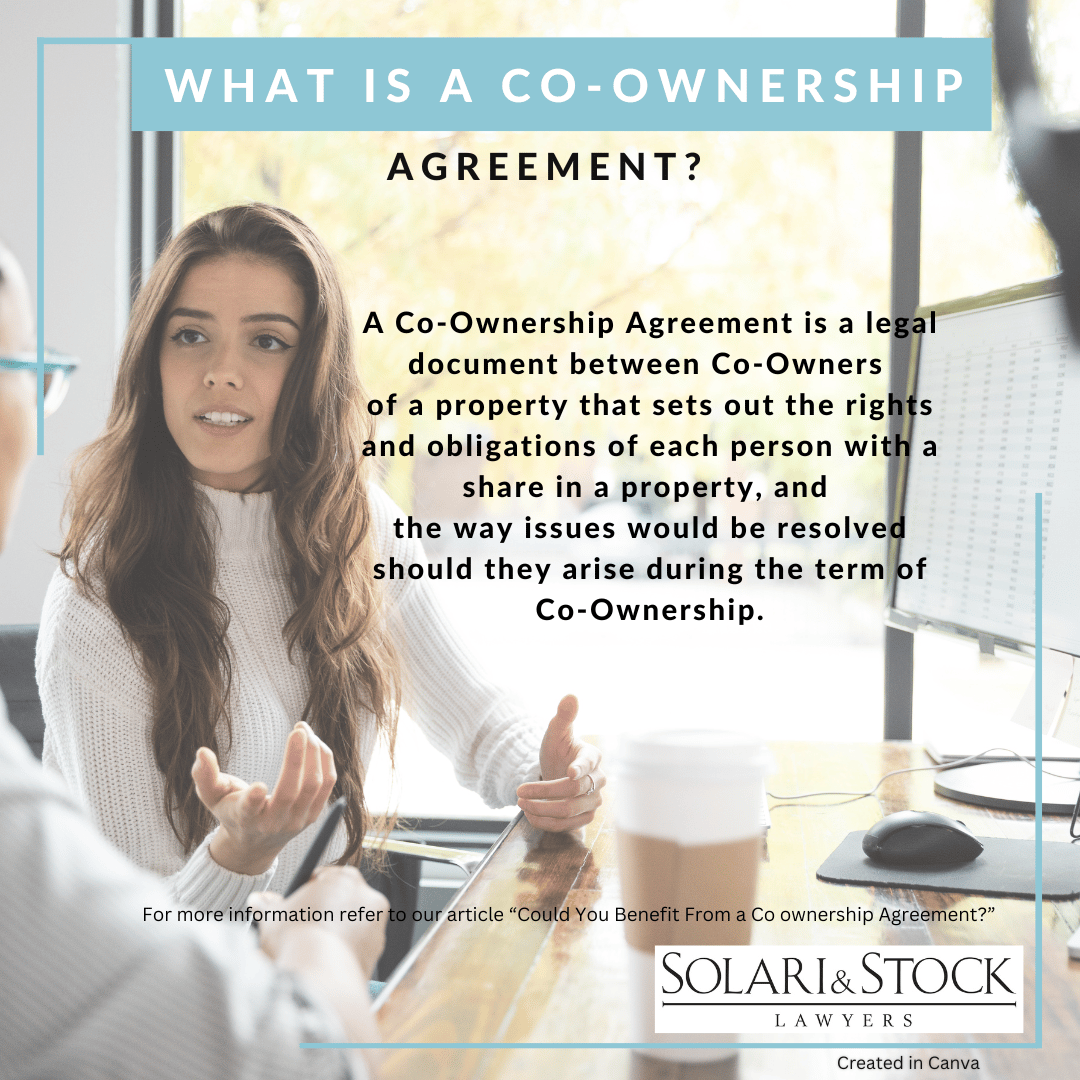
Friends are not only purchasing in to live under one roof together, they’re also investing in land and building individuals dwelling on them.
Anabella Mainett, 40, of Dallas, who builds tiny homes for a living, says she’s seen a recent uptick in tiny home purchases among Gen Z and Millennials.
“It’s becoming common for people to create compounds of tiny homes with their friends or family,” says Mainetti.
“I’ve seen compounds of friends, or just women only. We just sold two houses this weekend- the person said they want to have the and they want to put tiny homes on for friends and family.
Kristina Modare, the founder of a startup that educates women on home buying, currently owns a property with four of her friends in Austin. The five of them originally lived together and had multiple dwellings on the property: a front house, a back house, and office space. But it’s since become a rental and investment property as they each have moved out over the years. She says the shared property has become a worthy investment, even as a rental. “I think this is going to be the next big trend in real estate”
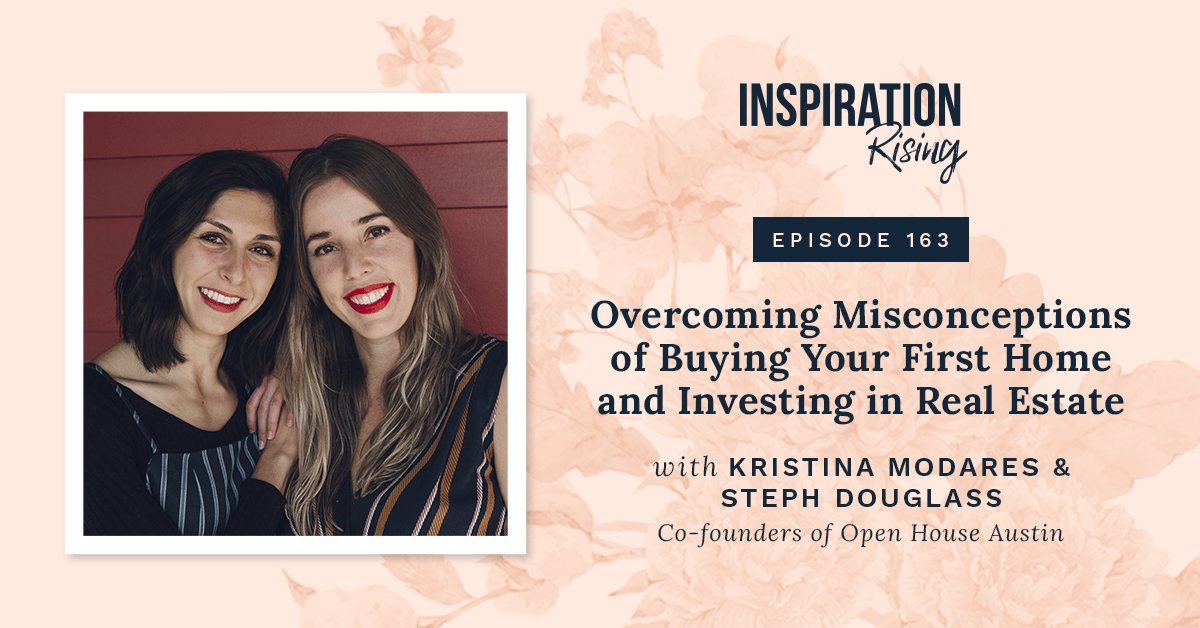
Gen Z is Rewriting The Wellness Playbook (And Employers Are Scrambling to Keep Up)
Okay, so here's the tea: we're all stressed, we're all burnt out, and we're finally talking about it.
55% of Gen Z employees report rising stress levels, and 56% of Millennials are right there with us. Both groups are experiencing burnout symptoms several times a week. Fun times! 🙃
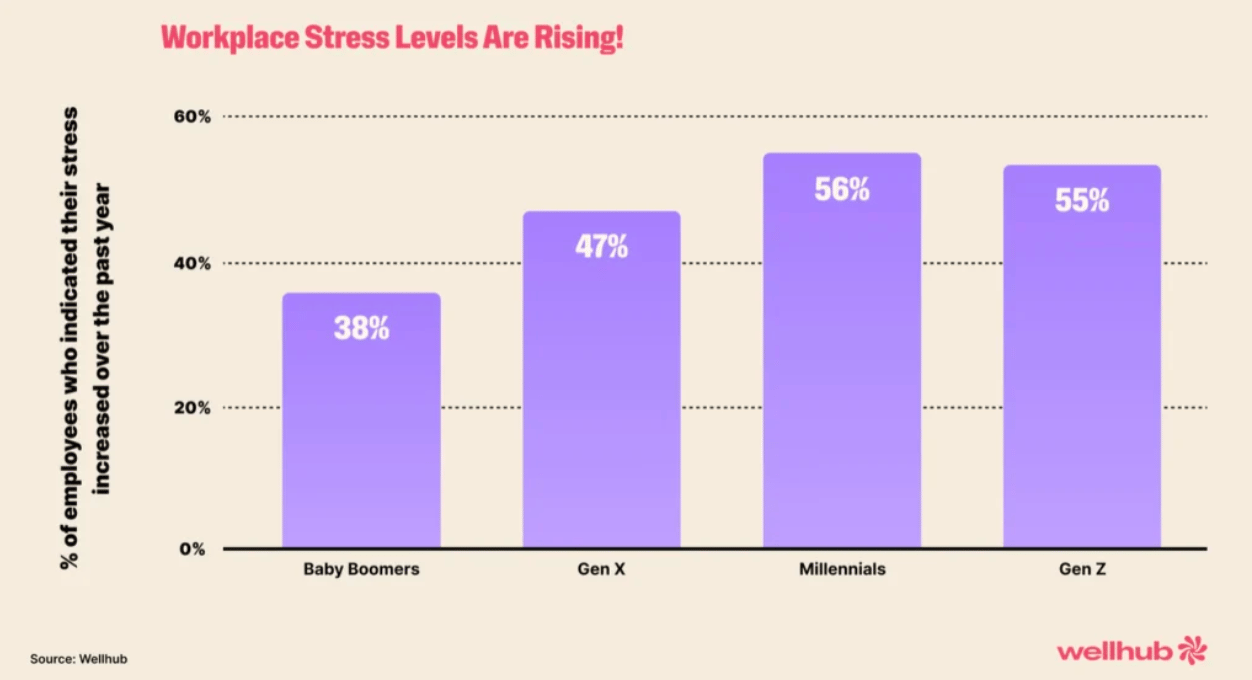
But here's what's different about Gen Z: we're not just complaining about it — we're actually doing something about it.
We're Not Just Talking About Mental Health, We're Living It
72% of Gen Z employees use wellness apps weekly and 68% say therapy is critical to their overall well-being. Compare that to just 33% of Boomers who feel the same way about therapy.
We've literally changed what "success" means. An EY study across ten countries found that 51% of Gen Z and younger Millennials now define success through their mental and physical health, ahead of money, career or status.
Read that again: we're prioritizing our well-being over our paychecks. That's not lazy — that's revolutionary.
The "Tough It Out" Era is OVER
While older generations equated resilience with grinding through burnout, Gen Z said "nah, we're good." We're creating a new workplace model where mental health support, flexible roles, and wellness tools aren't nice-to-haves — they're dealbreakers.
And the data backs us up. 89% of workers perform better when they prioritize their health. So when companies invest in wellness programs, everyone wins: 61% of employees with wellness programs say their overall well-being is good or thriving, compared with 40% without.
The impact shows up everywhere:
Physical health: 60% vs. 43%
Work-life balance: 79% vs. 55%
Trust in HR: 77% vs. 38%
Feeling adequately paid: 90% vs. 57%
Gyms Are The New Happy Hours
Here's something wild: 91% of respondents said gyms, yoga studios and wellness spaces now play the role bars and coffee shops once did. Nearly three-quarters visit these spaces weekly, and one in five go daily.
"Third places" aren't about networking over drinks anymore — they're about managing stress and actually connecting with people in ways that don't wreck our mental health the next day.
Companies Are Finally Getting It
Some employers are actually catching on:
Deloitte expanded its wellness subsidy to cover Legos and puzzles (yes, really), giving U.S. staff up to $1,000 a year for stress relief — an allowance they doubled in 2021
Sheetz opened three on-site wellness centers with medical professionals, fitness trainers, dietitians, and physical therapists, plus virtual options for remote staff
This isn't about ping pong tables and free snacks anymore. Gen Z is forcing companies to take wellness seriously — and the ones that don't? They're going to lose top talent to the ones that do.
The message is clear: we're not just asking for better work-life balance. We're demanding it. And we're building a future where burnout isn't a badge of honor — it's a red flag that something needs to change.
70% of Gen Z is stuck in low-quality jobs and they’re miserable
70% of Gen Z is stuck in low-quality jobs and they’re miserable. A new study reveals that the large majority of Gen Z lacks access to jobs that provide financial security, dignity, and growth opportunities.
A new Gallup study confirms what many Gen Z already know: jobs no longer offer the financial stability past generations enjoyed. This explains their shift away from hustle culture towards prioritizing work-life balance.
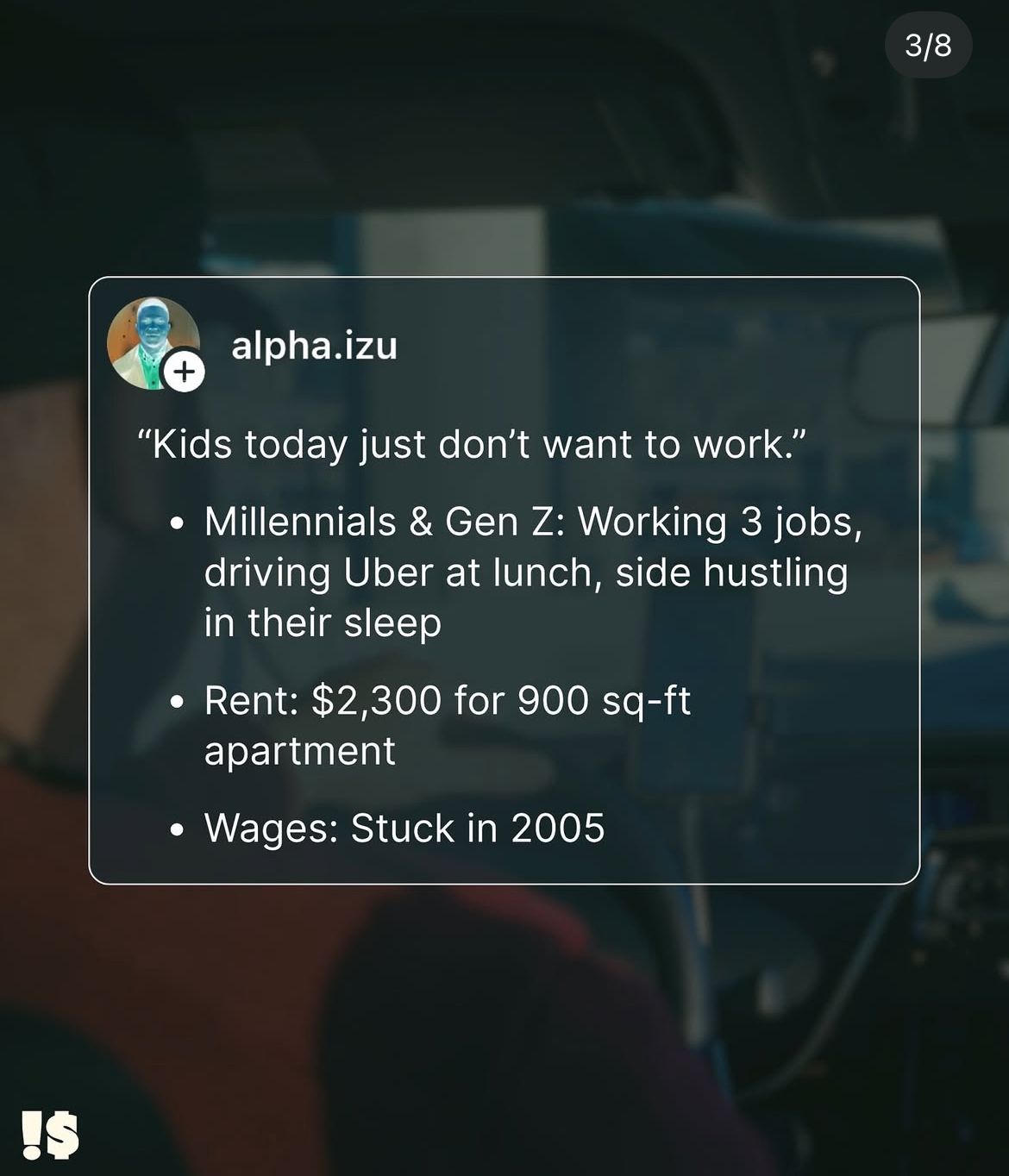
In addition to low-quality jobs, Gen Z faces shaky job market.
The Hottest Trend is Hating on AI In Marketing?
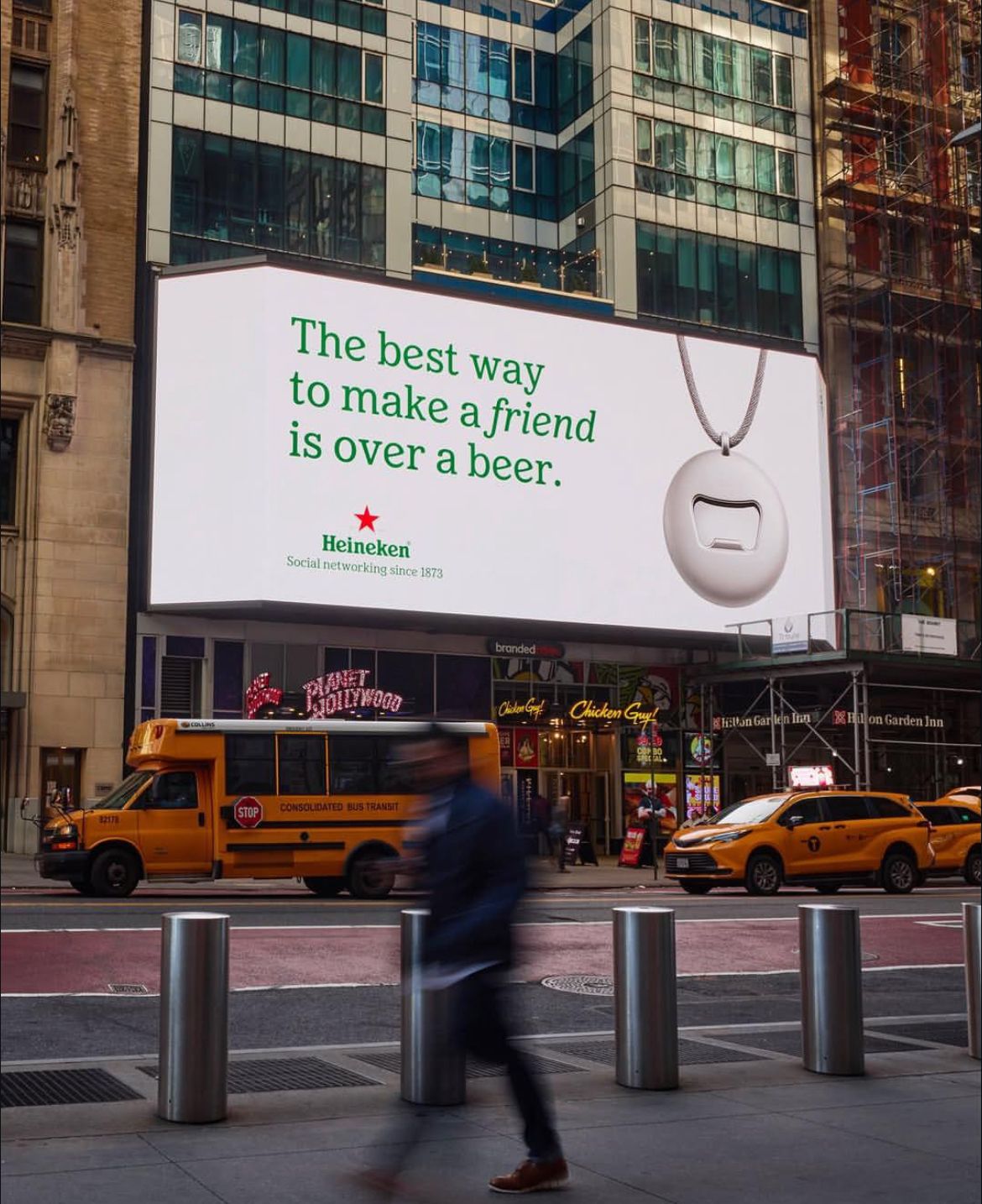
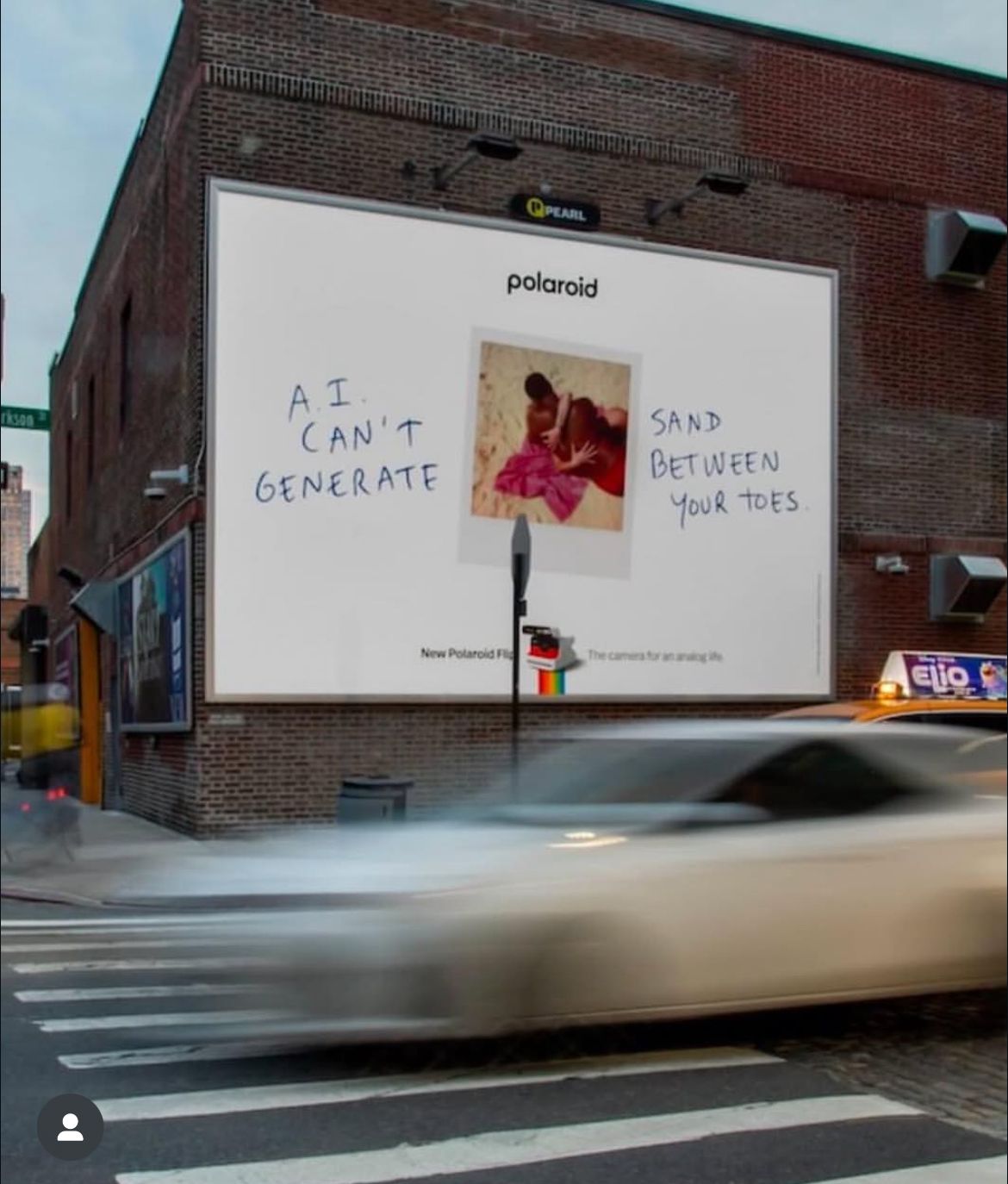
The "Clean Girl" Aesthetic is Dead (And We're Not Mad About It)
The polished, beige-toned "clean girl" aesthetic? Yeah, that's officially over.
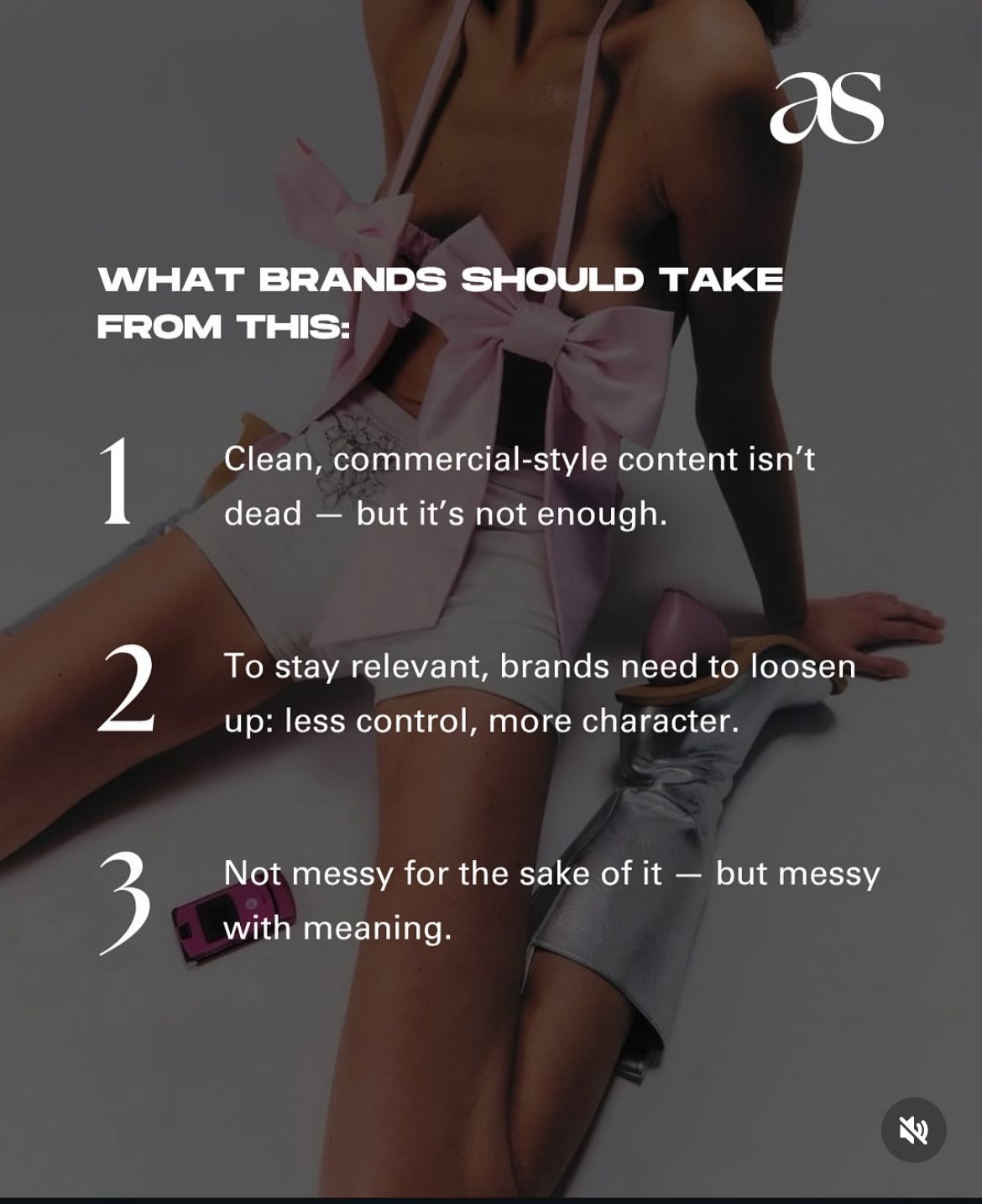
We're tired of the perfectly curated feed. The perfectly placed latte. The perfectly messy bun that took 20 minutes to get "just right." It all feels... fake.
Now? We want messy textures. Unfiltered moments. A little bit of chaos on purpose.
It's not about looking perfect anymore — it's about looking real.
Gen Z is reacting to years of curated, over-styled content that made us feel like we were constantly performing. So we're leaning into what feels honest, even if that means chipped nails, cluttered backgrounds, or uneven lighting that would've made 2019-era Instagram influencers cringe.
But plot twist: while women are ditching the clean girl aesthetic, Gen Z men are fully embracing their own version of it. Enter the matcha + quarter zip phenomenon.
You've seen it everywhere — guys posting their morning matcha runs in Patagonia quarter zips, pristine New Balance sneakers, and that very specific "I have my life together" energy. It's giving finance bro meets wellness influencer, and honestly? It's become the male equivalent of the clean girl aesthetic we just said goodbye to.
The irony isn't lost on us. Just as women are rejecting the pressure to be perfectly polished, men are leaning into it. Same curated vibes, different gender, different uniform.
The vibe shift is real, and honestly? It feels like we can finally breathe. Well, at least half of us can. The guys are still out here perfecting their matcha foam art. 😅
Other Events + Resources I Found
What Does GenZtea Actually Do?
We get this question a lot! While we're known for our exclusive IRL events and newsletter, GenZtea LLC offers a full range of services to help brands authentically connect with the Gen Z startup community.
GenZtea LLC Services
Gen Z Consulting & Advisory - Strategic consulting and ongoing advisory roles on reaching, engaging, and building authentic relationships with Gen Z consumers, employees, and entrepreneurs. From product development insights to workplace culture recommendations and long-term strategic guidance.
LinkedIn Influencer Marketing - Leverage Natalie’s personal LinkedIn network and authentic Gen Z voice to amplify your brand message to founders, creators, and investors in the startup ecosystem.
Sponsored LinkedIn Content - Strategic paid posts on our personal LinkedIn account to reach our engaged professional network with your brand messaging and thought leadership content.
Speaking Engagements - Book Natalie Neptune for keynote presentations and panel discussions on the future of work, Gen Z in the workplace, startup ecosystems, and community building at your corporate events or conferences.
LinkedIn Workshops - Custom workshops for your team on LinkedIn strategy, personal branding, and professional networking specifically tailored for reaching and engaging Gen Z professionals.
Tech Event Strategy & Execution - Full-service event planning and execution for tech networking events, panel discussions, and community gatherings that authentically connect with the Gen Z demographic.
GenZtea Event Sponsorship Opportunities - Partner with us through financial sponsorship, venue partnerships, or product gifting (CPG & food) for our exclusive networking events.
Ready to work together? Reach out to [email protected] to discuss how GenZtea can help amplify your brand in the Gen Z startup community.



